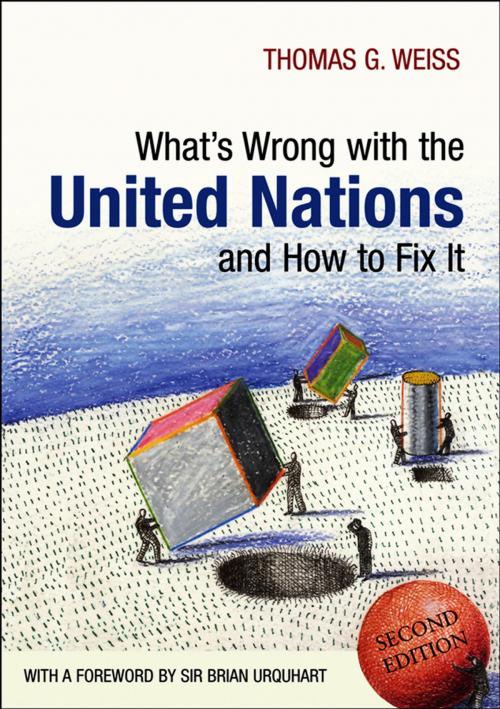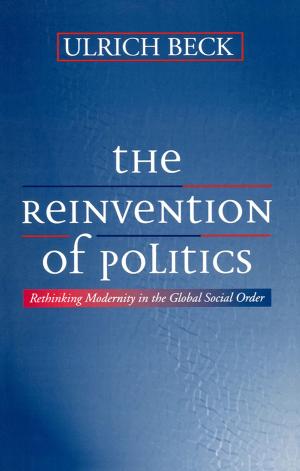What's Wrong with the United Nations and How to Fix it
Nonfiction, Social & Cultural Studies, Political Science, International, International Relations| Author: | Thomas G. Weiss | ISBN: | 9780745661469 |
| Publisher: | Wiley | Publication: | May 20, 2013 |
| Imprint: | Polity | Language: | English |
| Author: | Thomas G. Weiss |
| ISBN: | 9780745661469 |
| Publisher: | Wiley |
| Publication: | May 20, 2013 |
| Imprint: | Polity |
| Language: | English |
Six decades after its establishment, the United Nations and its system of related agencies and programs are perpetually in crisis. While the twentieth-century’s world wars gave rise to ground-breaking efforts at international organization in 1919 and 1945, today’s UN is ill-equipped to deal with contemporary challenges to world order. Neither the end of the Cold War nor the aftermath of 9/11 has led to the “next generation” of multilateral institutions.
But what exactly is wrong with the UN, and how can we fix it? Is it possible to retrofit the world body? In his succinct and hard-hitting analysis, Thomas G. Weiss takes a diagnose-and-cure approach to the world organization’s inherent difficulties. In the first half of the book, he considers: the problems of international leadership and decision making in a world of self-interested states; the diplomatic difficulties caused by the artificial divisions between the industrialized North and the global South; the structural problems of managing the UN’s many overlapping jurisdictions, agencies, and bodies; and the challenges of bureaucracy and leadership. The second half shows how to mitigate these maladies and points the way to a world in which the UN’s institutional ills might be “cured.” His remedies are not based on pious hopes of a miracle cure for the UN, but rather on specific and encouraging examples that could be replicated. With considered optimism and in contrast to received wisdom, Weiss contends that substantial change in intergovernmental institutions is plausible and possible.
The new and expanded second edition of this well-regarded and indispensable book will continue to spark debate amongst students, scholars, and policymakers concerned with international politics, as well as anyone genuinely interested in the future of the United Nations and multilateral cooperation.
Six decades after its establishment, the United Nations and its system of related agencies and programs are perpetually in crisis. While the twentieth-century’s world wars gave rise to ground-breaking efforts at international organization in 1919 and 1945, today’s UN is ill-equipped to deal with contemporary challenges to world order. Neither the end of the Cold War nor the aftermath of 9/11 has led to the “next generation” of multilateral institutions.
But what exactly is wrong with the UN, and how can we fix it? Is it possible to retrofit the world body? In his succinct and hard-hitting analysis, Thomas G. Weiss takes a diagnose-and-cure approach to the world organization’s inherent difficulties. In the first half of the book, he considers: the problems of international leadership and decision making in a world of self-interested states; the diplomatic difficulties caused by the artificial divisions between the industrialized North and the global South; the structural problems of managing the UN’s many overlapping jurisdictions, agencies, and bodies; and the challenges of bureaucracy and leadership. The second half shows how to mitigate these maladies and points the way to a world in which the UN’s institutional ills might be “cured.” His remedies are not based on pious hopes of a miracle cure for the UN, but rather on specific and encouraging examples that could be replicated. With considered optimism and in contrast to received wisdom, Weiss contends that substantial change in intergovernmental institutions is plausible and possible.
The new and expanded second edition of this well-regarded and indispensable book will continue to spark debate amongst students, scholars, and policymakers concerned with international politics, as well as anyone genuinely interested in the future of the United Nations and multilateral cooperation.















